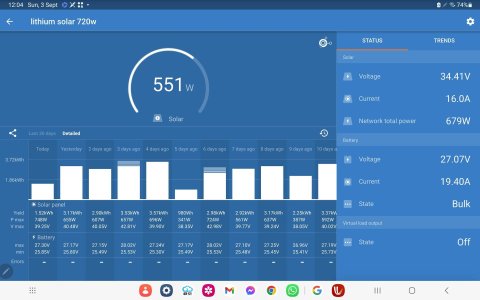Stemar
Well-Known Member
I had one of these on Jissel

Dual Battery Controller 10A - 12V/24V - Sunshine Solar - Sunshine Solar Limited
Cheap and cheerful, at under £40, but it was still working finewhen I sold the boat after better than 10 years. Nothing clever, I had it set up to charge the starter battery until it burped, then work on the domestic, on the basis that the starter battery would rarely need much, but I really wanted to be able to start the engine in the event of problems, but it spent most of its time working on the domestic one.

Dual Battery Controller 10A - 12V/24V - Sunshine Solar - Sunshine Solar Limited
Cheap and cheerful, at under £40, but it was still working finewhen I sold the boat after better than 10 years. Nothing clever, I had it set up to charge the starter battery until it burped, then work on the domestic, on the basis that the starter battery would rarely need much, but I really wanted to be able to start the engine in the event of problems, but it spent most of its time working on the domestic one.

